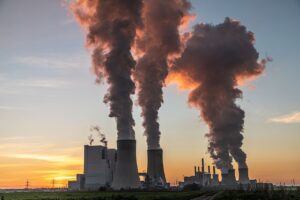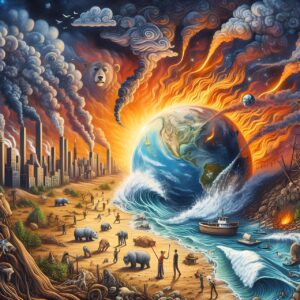
Uncover alarming facts about global warming and its profound implications for the environment. Need action to mitigate its effects. Learn about the devastating impact of deforestation on biodiversity and climate stability. Explore sustainable solutions to combat deforestation.
Indeed, Global warming is the rapid rise in our planet’s average surface temperature from time to time. It is because of fossil fuels, deforestation, industrial processes, and agricultural practices. Since the Industrial advancement in development has messed up the environment badly straightaway.
As a result, it disturbs weather patterns, causing extreme climate events like hurricanes, droughts, heatwaves, and floods. Besides melting polar ice caps contribute to rising sea levels, threatening coastal communities and habitats. Furthermore, global warming disrupts ecosystems, leading to species loss and changes in wildlife environments.
Its impact on agriculture results in food shortages and economic instability, affecting livelihoods. Addressing global warming requires collective action to reduce greenhouse gas production and follow a natural, healthy, and energetic Ecofriendly lifecycle globally. We have to protect our world for future generations.

Global warming “The Silent Crisis”:
Undoubtedly, It has proven the drastic gradual change in the climate’s average temperature due to human activities. In the atmosphere, greenhouse gases like carbon dioxide (CO2) and methane (CH4) are harmful. They produce heat and become a great cause to pollute our environment. Due to climate change, we have to face natural mishaps globally.
In this Silent Crisis, Global warming is dangerous for the planet. Global warming extends beyond temperature, melting ice caps, rising sea levels, extreme weather events, loss of freshwater resources, health problems, and mental health impacting ecosystems and societies worldwide. Moreover, It is a silent crisis because its impacts often go unnoticed until they occur in disasters.
Facts about Global Warming:
Rising Temperatures:
One of the most evident effects of global warming is the steady rise in temperatures worldwide. Over the past century, the Earth’s average temperature has increased by approximately 1.2 degrees Celsius (2.2 degrees Fahrenheit).
Melting Ice Caps and Glaciers:
Ice caps and glaciers in Polar Regions and mountainous areas are melting alarmingly as temperatures rise. It contributes to sea-level rise, threatens coastal communities, and disrupts ocean currents, affecting global climate systems.
Extreme Weather Events:
Global warming amplifies the frequency and severity of extreme weather events, including heatwaves, hurricanes, droughts, and heavy rainfall. In short, these events result in widespread destruction, loss of life, and economic damage, particularly in exposed regions.
Sea Level Rise:
It should be noted, that the melting of polar ice and the thermal expansion of seawater due to rising temperatures lead to a gradual rise in sea levels. This phenomenon tells us about low-lying coastal areas, increasing the risk of flooding, erosion, and saltwater intrusion into freshwater sources.
Ocean Acidification:
Increased carbon dioxide in the atmosphere contributes to global ocean acidification. This process alters marine ecosystems, affecting coral reefs, shellfish, and other fisheries organisms, with falling impacts on biodiversity and creatures.
Trouble of Ecosystems:
Global warming disrupts ecosystems worldwide, causing shifts in habitats, species distributions, and ecological interactions. Some species may struggle to adapt to rapidly changing conditions, leading to biodiversity loss and ecosystem deficiency.
Social and Economic Impacts:
Without a doubt, Global warming is not just a disorder of nature but also destroys our lives and money. It damages our agriculture, health issues, and even our buildings. We need to act fast to deal with these dangerous damages.

How to get rid of Global warming:
- Implement energy efficiency measures.
- Reduce transportation emissions.
- Plant trees and restore forests.
- Promote sustainable agriculture.
- Invest in carbon capture.
- Improve waste management.
- Enhance urban design for efficiency.
- Encourage sustainable consumption.
- Phase out fossil fuel subsidies.
- Promote carbon pricing.
- Increase public awareness.
- Strengthen international cooperation.
- Support reforestation efforts.
- Invest in infrastructure.
Conclusion:
Finally, Global warming poses a silent crisis that demands immediate attention and action. Its far-reaching impacts on ecosystems, economies, and societies. To get rid of this issue requires collective efforts and innovative solutions. Someone has said: “If you think the environment is less important than the economy, try holding your breath while you count your money”.









Helpful post, Thank you. For more information about this subject and Classical Guitar you can find useful articles on https://mohammadtaherkhani.com . Have a good day.